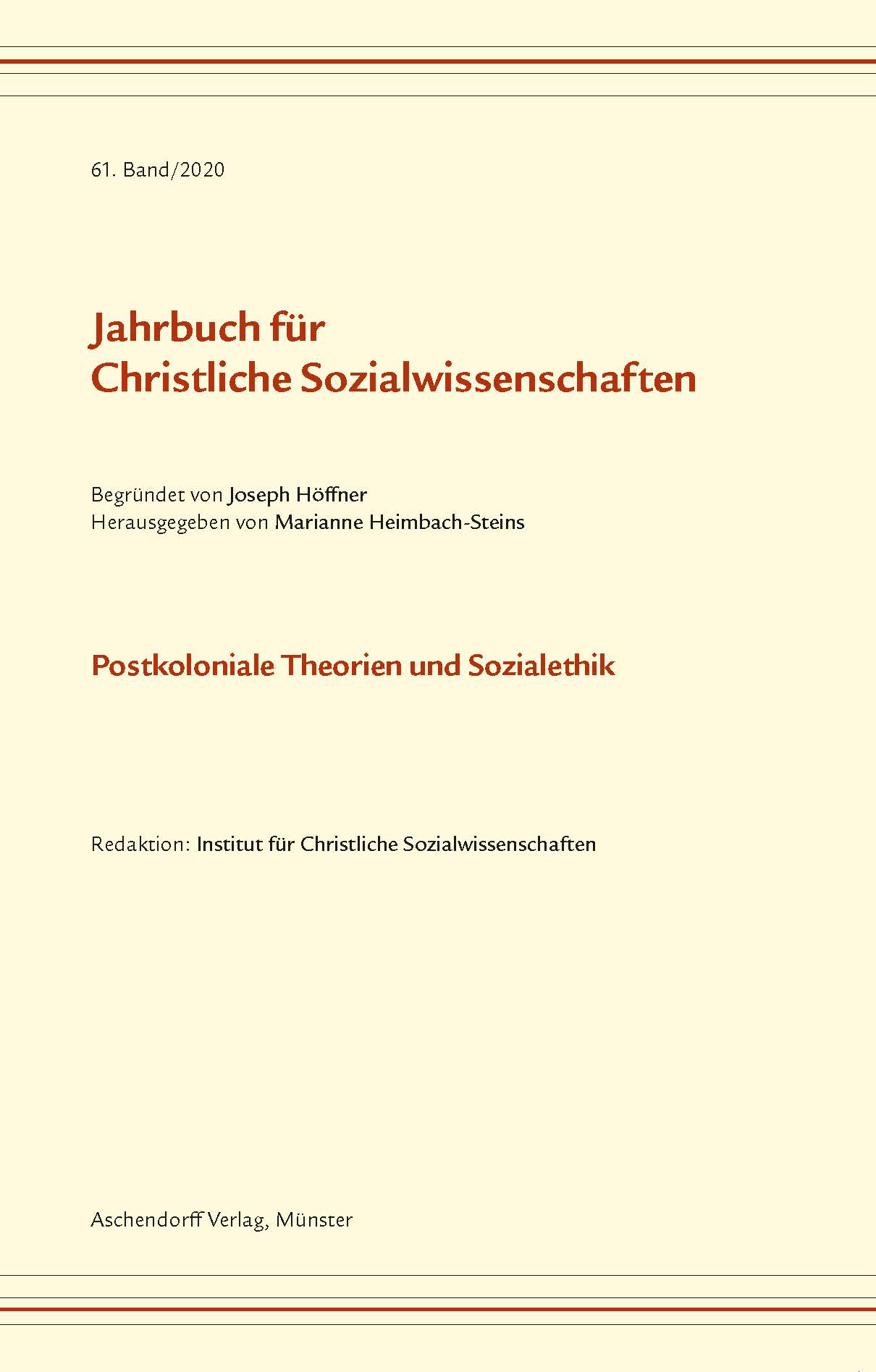Zur Rezeption Postkolonialer Theorie in der deutschsprachigen Theologie
Ein Literaturüberblick
DOI:
https://doi.org/10.17879/jcsw-2020-2981Abstract
Postcolonial theory emerged in the English-speaking world in the 1980s, initiated by Edward W. Said’s influential study Orientalism (1978). It arrived in the German speaking world toward the end of the 20th century. In theology, the theory started to leave its mark a bit more than ten years ago. First above all scholars in missiology/intercultural theology honored the significance of the theory for theology. But by addressing the lasting significance of a colonial mindset and praxis as well as the complexities of cultural transformations and the accompanying power dynamics, the theory clearly is of importance for social ethics as well. The relevance for social ethics in general becomes visible in the analysis of hegemonic epistemologies in intercultural and interreligious contexts where postcolonial insights contribute to a deeper understanding. More specifically it is in the theological-ethical discussion of migration in the German speaking area where postcolonial theory has proven valuable with its subtle analysis of cultural diversity and hybridity. Yet, a more comprehensive treatment of postcolonial theory in its significance for Christian social ethics is still to be developed.

